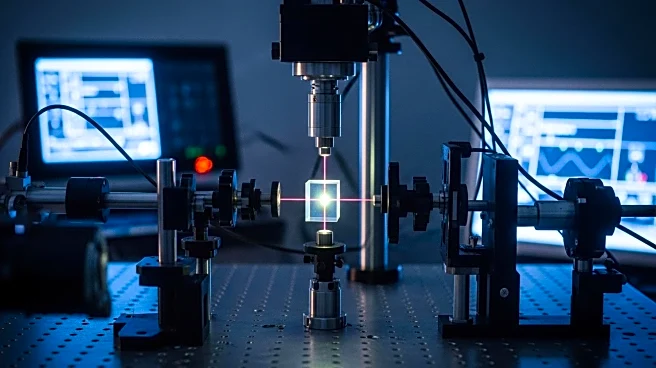What is the story about?
What's Happening?
The 2005 Nobel Prize in Physics was awarded to Roy J. Glauber, T. W. Hänsch, and John L. Hall for their pioneering work in quantum optics and laser-based precision spectroscopy. Glauber was recognized for his contributions to the quantum theory of optical coherence, while Hänsch and Hall were honored for developing the optical frequency comb, a tool that has revolutionized precision measurements in physics. The optical frequency comb allows for the precise measurement of light frequencies, bridging the gap between radio and optical waves. This innovation has provided a more compact and accessible platform for scientific research, enhancing the accuracy of timekeeping and enabling new experiments in fundamental physics.
Why It's Important?
The advancements recognized by the 2005 Nobel Prize have had a significant impact on various fields of science and technology. The optical frequency comb, in particular, has become an essential tool in precision spectroscopy, leading to improvements in atomic clocks and GPS technology. These developments have implications for telecommunications, navigation, and fundamental research in physics. The work of Glauber, Hänsch, and Hall has paved the way for new discoveries and applications, highlighting the importance of precision measurement in advancing scientific knowledge and technological innovation.
Beyond the Headlines
The recognition of these contributions underscores the critical role of fundamental research in driving technological progress. The optical frequency comb's ability to measure light with unprecedented precision has opened new avenues for research in quantum mechanics and other areas of physics. This work exemplifies how theoretical advancements can lead to practical applications, influencing a wide range of industries and scientific disciplines. The legacy of the 2005 Nobel laureates continues to inspire ongoing research and development in precision measurement technologies.
















